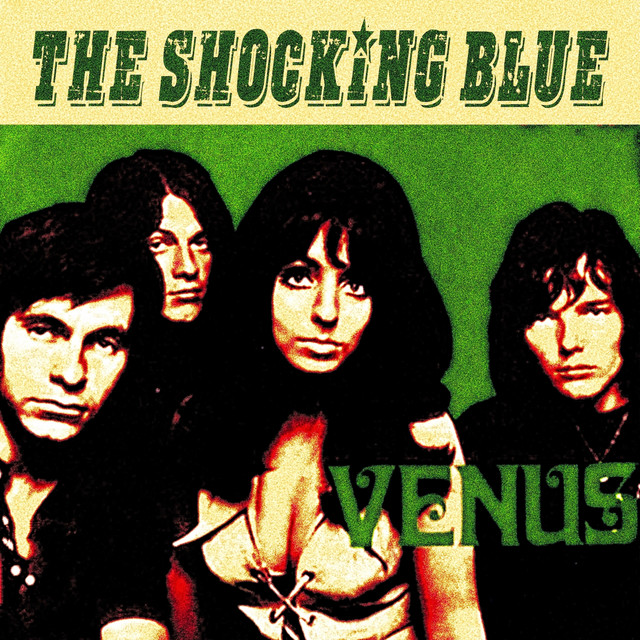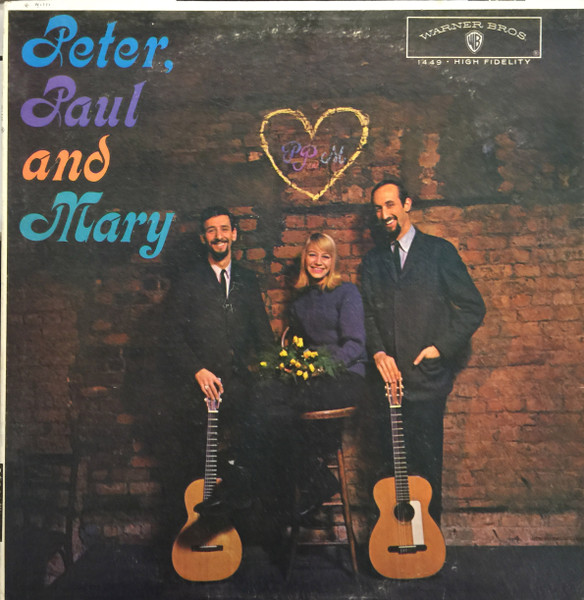 When “You Really Got Me” exploded onto the airwaves in 1964, it did more than just climb the charts—it detonated the landscape of rock music itself. A two-minute, two-chord masterpiece of snarling attitude and raw guitar aggression, the song didn’t just signal the arrival of a new band; it helped forge the future of hard rock, punk, and heavy metal. The Kinks, a scrappy group of North London outsiders led by brothers Ray and Dave Davies, weren’t polished like the Beatles or suave like the Rolling Stones. They were primal, chaotic, and unpredictable. And with “You Really Got Me,” they made a song so simple, so direct, and so powerful that it changed everything.
When “You Really Got Me” exploded onto the airwaves in 1964, it did more than just climb the charts—it detonated the landscape of rock music itself. A two-minute, two-chord masterpiece of snarling attitude and raw guitar aggression, the song didn’t just signal the arrival of a new band; it helped forge the future of hard rock, punk, and heavy metal. The Kinks, a scrappy group of North London outsiders led by brothers Ray and Dave Davies, weren’t polished like the Beatles or suave like the Rolling Stones. They were primal, chaotic, and unpredictable. And with “You Really Got Me,” they made a song so simple, so direct, and so powerful that it changed everything.
Before The Kinks hit the scene, British rock was still largely enamored with American rhythm and blues, girl groups, doo-wop, and Merseybeat pop. While the Beatles were conquering the world with their harmonies and the Stones were injecting blues with sex and swagger, the Kinks took a different approach. They stripped everything down, carved out the gloss, and went for something meaner, leaner, and rougher. Ray Davies, the band’s lead singer and principal songwriter, was only twenty when he penned “You Really Got Me,” yet he captured the boiling essence of teenage obsession and frustration in a way that felt explosive. The lyrics weren’t poetic. They were urgent. Direct. Almost primal in their insistence. “Girl, you really got me going / You got me so I don’t know what I’m doing.” It wasn’t about subtlety—it was about need.
Musically, it was unlike anything the world had heard before. The heart of the song—its wild, distorted guitar riff—was played by Dave Davies, Ray’s younger brother. The sound came from sheer experimentation and teenage rebellion. Dave famously slashed the speaker cone of his Elpico amplifier with a razor blade and poked it with pins, running it through another amp to create a grinding, buzzing, distorted sound that no one had heard on a hit single before. That DIY spirit gave the song its edge. It wasn’t studio perfection—it was street-level fury. That jagged riff, often considered one of the first great heavy guitar riffs in rock history, set the blueprint for every hard rock and heavy metal song that came afterward. Without “You Really Got Me,” there is no Led Zeppelin, no Van Halen, no punk movement. It is the Big Bang.
The structure of the song is brutally simple. Two chords—power chords, no less—repeated in a stuttering, stop-start rhythm. A brief solo. A pummeling vocal. Then out. It’s barely over two minutes long, but it says more in those minutes than many bands manage in an entire album. And yet, that simplicity masks its genius. The song is perfectly balanced. It builds tension, erupts, and then collapses in on itself before it overstays its welcome. Every element—the raw guitar tone, Ray’s slightly unhinged vocals, the crash of the drums—is delivered with a sense of urgent necessity, like this was a song that had to exist.
When the song was released on August 4, 1964, it was an instant smash. It climbed to No. 1 on the UK Singles Chart, giving The Kinks their first major hit. In the United States, it reached No. 7 on the Billboard Hot 100, announcing the Kinks as major players in the British Invasion. But more than commercial success, “You Really Got Me” earned cultural relevance. It sounded different. It felt dangerous. While the Beatles were making girls swoon and the Stones were swaggering into bluesy coolness, the Kinks were howling with frustration, burning with desire. This was not music for dreamers—it was music for kids who couldn’t sit still, who didn’t fit in, who needed to scream.
Part of what made the song so iconic was how unexpected it was. The Kinks’ first two singles—“Long Tall Sally” and “You Still Want Me”—barely made a dent. They were fine, polite R&B covers that gave no hint of the band’s real potential. But with “You Really Got Me,” Ray Davies suddenly found his voice, and more importantly, his vision. He took the blues influence and ran it through a blender of aggression, class frustration, and teenage desperation. He didn’t want to write love songs that swooned—he wanted to write love songs that sounded like fights, like obsessions, like addiction. That core instinct would drive much of The Kinks’ future work, but nowhere was it clearer or more urgent than on this breakthrough track.
There was immediate debate about the song’s iconic guitar solo. Some rumors—persistent for decades—claimed that a young Jimmy Page played the lead guitar part. But Dave Davies has always maintained that it was him, and he’s right. The solo is jagged and spontaneous, slightly off-kilter in a way that feels human and electric at once. It doesn’t show off technical precision—it shows off raw emotion. Dave, then just 17 years old, injected his rage and attitude into every note. If Jimmy Page had played it, it might have sounded cleaner—but it wouldn’t have had the same gut-punch.
What “You Really Got Me” also represented, perhaps more than anything else, was a shift in power. It was one of the first major hits to lean entirely on power chords and distortion, paving the way for the evolution of rock as a heavier, more visceral medium. The riff would become a staple of guitarists everywhere. It would echo through the riffs of Black Sabbath, the Ramones, Nirvana, and countless others. The song didn’t just open doors—it kicked them down.
And yet, for all its toughness, “You Really Got Me” is deeply human. It’s a love song, albeit one without romantic flourishes. It doesn’t talk about sunsets or forever—it talks about being overwhelmed, confused, lost in someone else’s gravity. That honesty struck a chord. It wasn’t polished—it was real. It didn’t lie to you with illusions of love as bliss. It showed love as madness, as possession, as raw electricity. And that, perhaps, is why it has endured so long.
The impact of the song cannot be overstated. It didn’t just make The Kinks stars—it made them leaders of a new kind of rock music. Within a year, they were releasing a string of killer singles—“All Day and All of the Night,” “Tired of Waiting for You,” “Till the End of the Day”—all of which borrowed the aggression and minimalist style of “You Really Got Me” while evolving into more sophisticated storytelling. Ray Davies would soon become one of rock’s most literate and introspective songwriters, chronicling British life and class anxieties with a poetic eye, but “You Really Got Me” remained the beating heart of the band’s mythology. It was their origin story, their banner, their call to arms.
The song’s legacy only grew with time. When Van Halen covered it in 1978, they supercharged it with Eddie Van Halen’s signature guitar pyrotechnics, introducing the song to a whole new generation. Their version became a hit in its own right, peaking at No. 36 on the Billboard chart and serving as their debut single. While purists may argue that nothing touches the original, Van Halen’s interpretation proved the song’s resilience—it could be reimagined without losing its soul.
But for all its covers and tributes, nothing matches the pure voltage of the original. That opening riff still lands like a punch. Ray’s voice, teetering between desire and exasperation, still hits like a confessional. Dave’s guitar, rough and distorted, still sounds like the start of a riot. The song’s energy is timeless. It doesn’t age. It doesn’t soften. It remains what it always was: one of the greatest, most important rock songs ever recorded.
“You Really Got Me” didn’t just influence music—it influenced attitude. It encouraged kids in garages everywhere to pick up guitars and start banging out chords. It told them they didn’t need fancy equipment, musical theory, or a polished sound. They just needed a riff, a voice, and something to scream about. That DIY spirit would carry into punk rock a decade later, but its roots were planted right here. With a razor blade, a busted speaker, and a riff that won’t quit.
What’s most remarkable is how accidental it all seems. The Kinks were broke, on the verge of being dropped by their label, and desperate for a hit. Ray Davies reworked “You Really Got Me” several times before settling on its final form. Dave’s amplifier sabotage was pure curiosity. The distorted tone wasn’t calculated—it was discovered. And yet, these accidents came together to create something alchemical. Something that feels inevitable now, but in 1964, felt like lightning.
More than sixty years later, “You Really Got Me” is still a touchstone. It’s taught in music schools. It’s referenced in documentaries. It appears in movies and TV shows as shorthand for rebellion, energy, and unfiltered emotion. And every time a kid picks up a guitar and plays those two chords, they’re tapping into the same pulse that shook the world in 1964.
The Kinks would go on to make more complex, more introspective, and arguably more musically refined songs. But they would never again capture the raw, world-shifting immediacy of “You Really Got Me.” That song was lightning in a bottle, a moment when everything came together to change the course of music. And it still crackles with that same dangerous energy today.
It was the sound of frustration turned into art. The sound of lust turned into a riff. The sound of a band standing on the edge of obscurity and leaping into legend. It wasn’t polite. It wasn’t refined. It wasn’t meant to be. It was, and remains, one of the most exhilarating slabs of rock ever pressed to vinyl. The Kinks didn’t just really get us—they never let us go.


